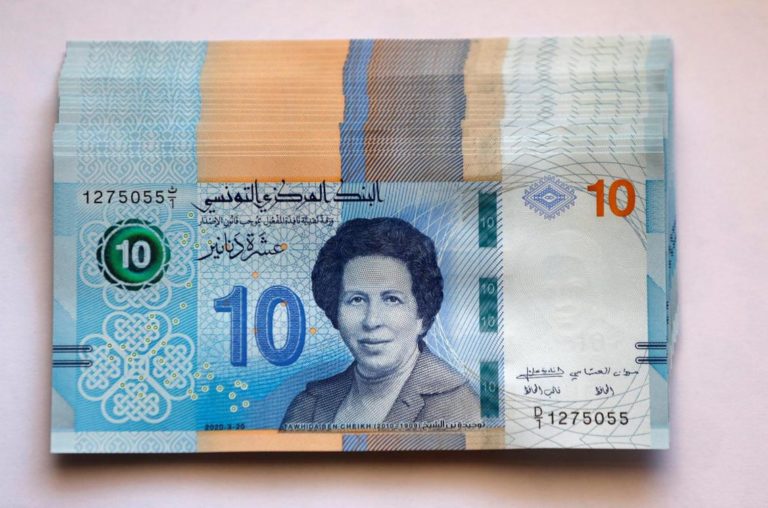Tunisia Celebrates Women and Doctors with a new Banknote
A tribute to doctors, nurses and caregivers
The new 10 Dinar note was issued on 27 March, although its planning started over a year ago. Born in 1909, Doctor Ben Cheikh was the first Tunisian and North African woman to practice medicine. After studying medicine in France, she opened her own clinic in Tunisia in 1936 and became particularly renowned for her work in women’s health and specialization in gynecology. Ben Cheikh headed campaigns around access to contraception and abortion. She also established Leila the first Tunisian French language magazine for women. She passed away in 2010 at the age of 101. The new banknoteA banknote (or ‘bill’ as it is often referred to in the US) is a type of negotiable promissory note, issued by a bank or other licensed authority, payable to the bearer on demand. More screams appreciation to all the doctors, nurses and caregivers for their tireless efforts in these critical times.
The new banknote will join the 81 other banknotes featuring women according to a recent analysis by Quartz of 622 banknotes from 75 countries. Men are featured on 324 notes, a ratio of 4 to 1. Ben Cheikh is not the first female doctor; in 2009, Clydesdale bank ins Scotland issued a £50 note portraying Elsie Inglis, a Scottish doctor, suffragist and founder of the Scottish Women’s hospitals.
A horrifying global surge in domestic violence
The issuing of the new banknote also resonates with the UN Secretary General’s call for measures to address a “horrifying global surge in domestic violence” directed towards women and girls. The combination of economic and social stress resulting from the pandemic, as well as restrictions on movement due to confinement policies, have dramatically increased the numbers of women and girls facing abuse, in almost all countries. However, even before the global spread of the new coronavirus, statistics showed that a third of women around the world experienced some form of violence in their lives.
CashMoney in physical form such as banknotes and coins. More is a lifeline for victims of domestic abuse
For women who are victims of domestic abuse, cash provides a safety net, as it allows them to disclose savings from abusive husbands or family members. Commenting after a recent domestic abuse case in the UK, Lisa King, Director of Communications at Refuge, UK’s leading charity providing services to survivors of domestic violence and abuse said:
“Having lack of access to cash is one of the ways in which women are financially controlled… it prevents a woman from leaving her perpetrator. It prevents her from being able to make choices she can because she hasn’t got access to funds… Cash is an essential kind of lifeline for women and children.”
